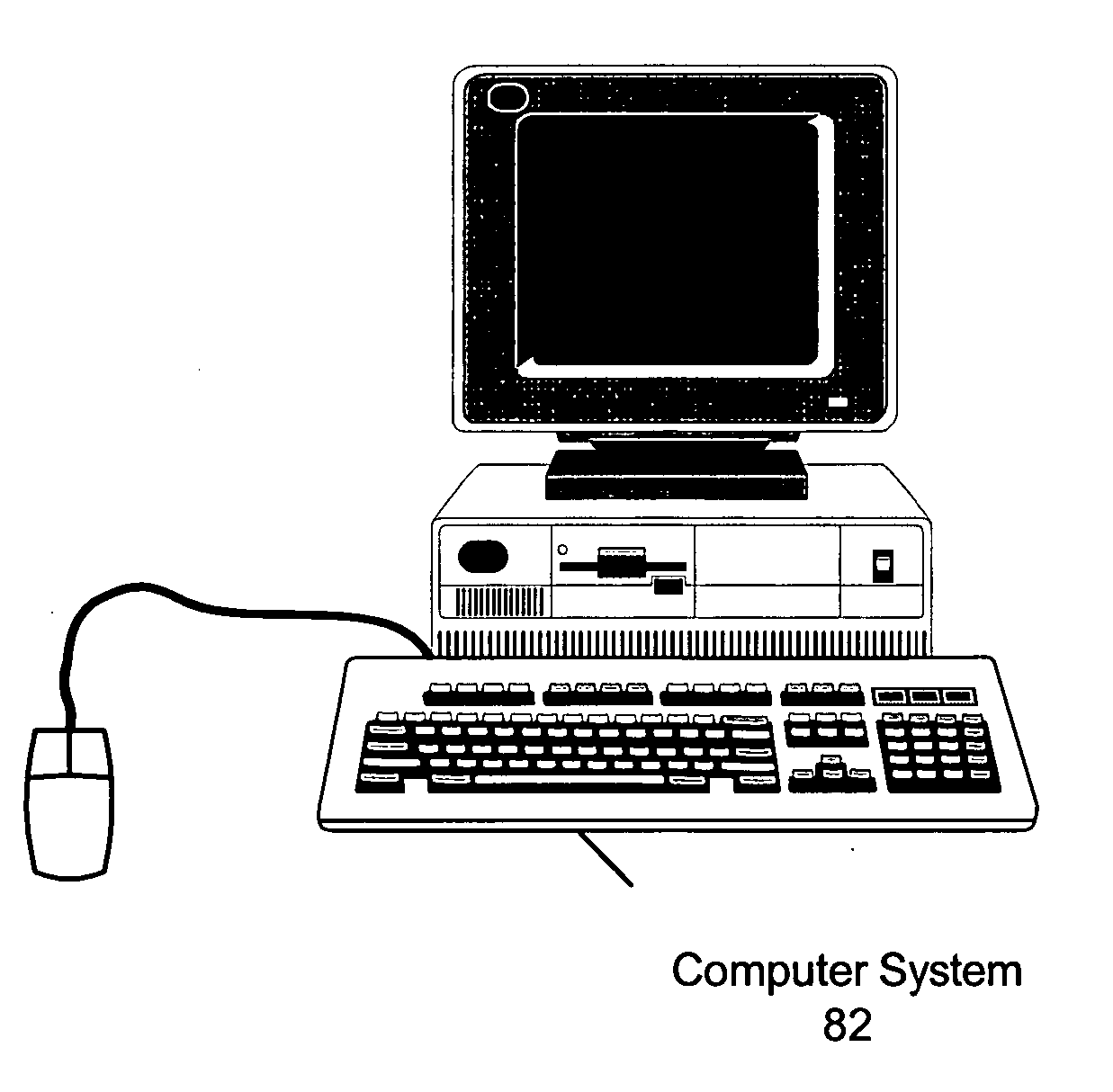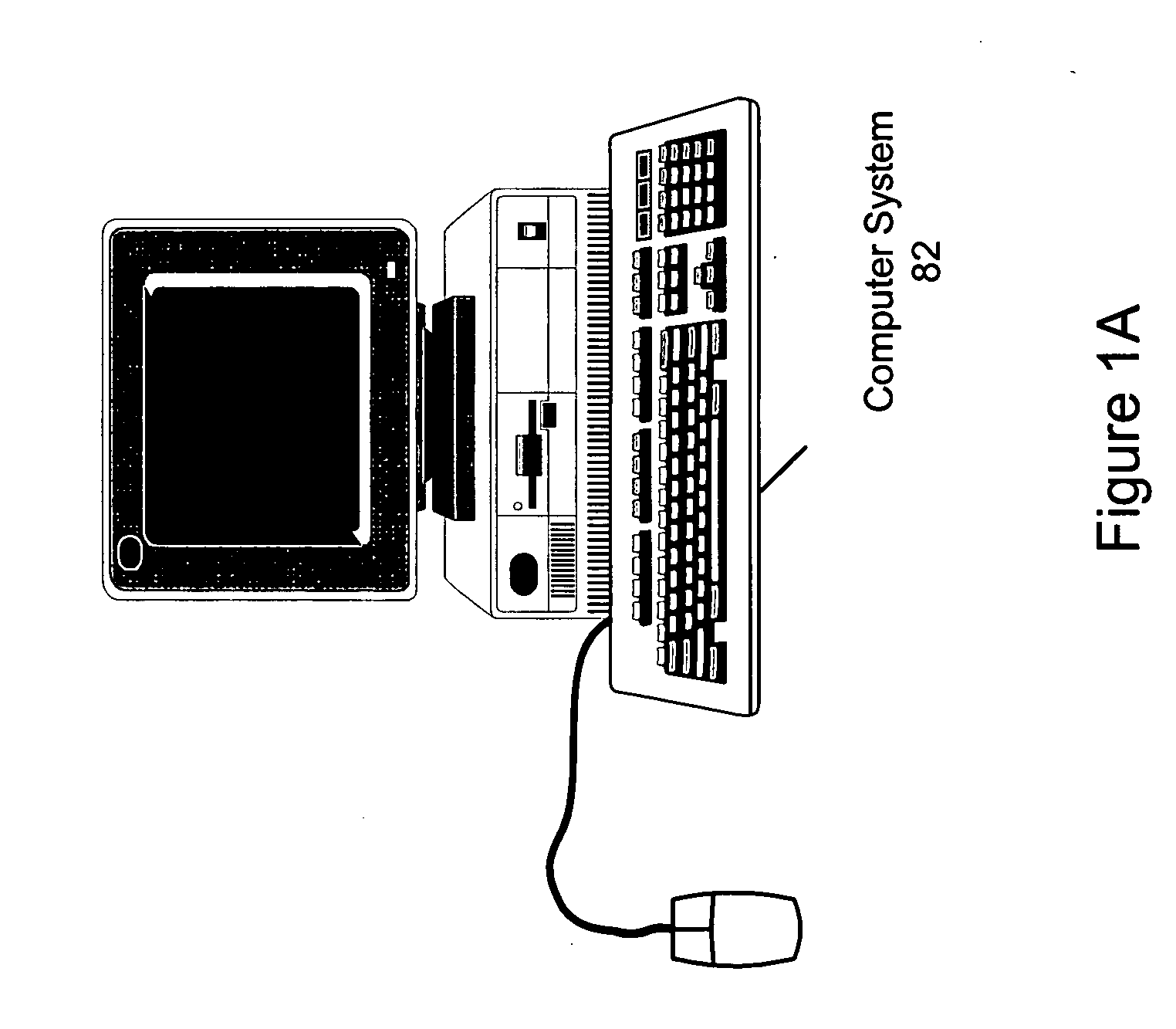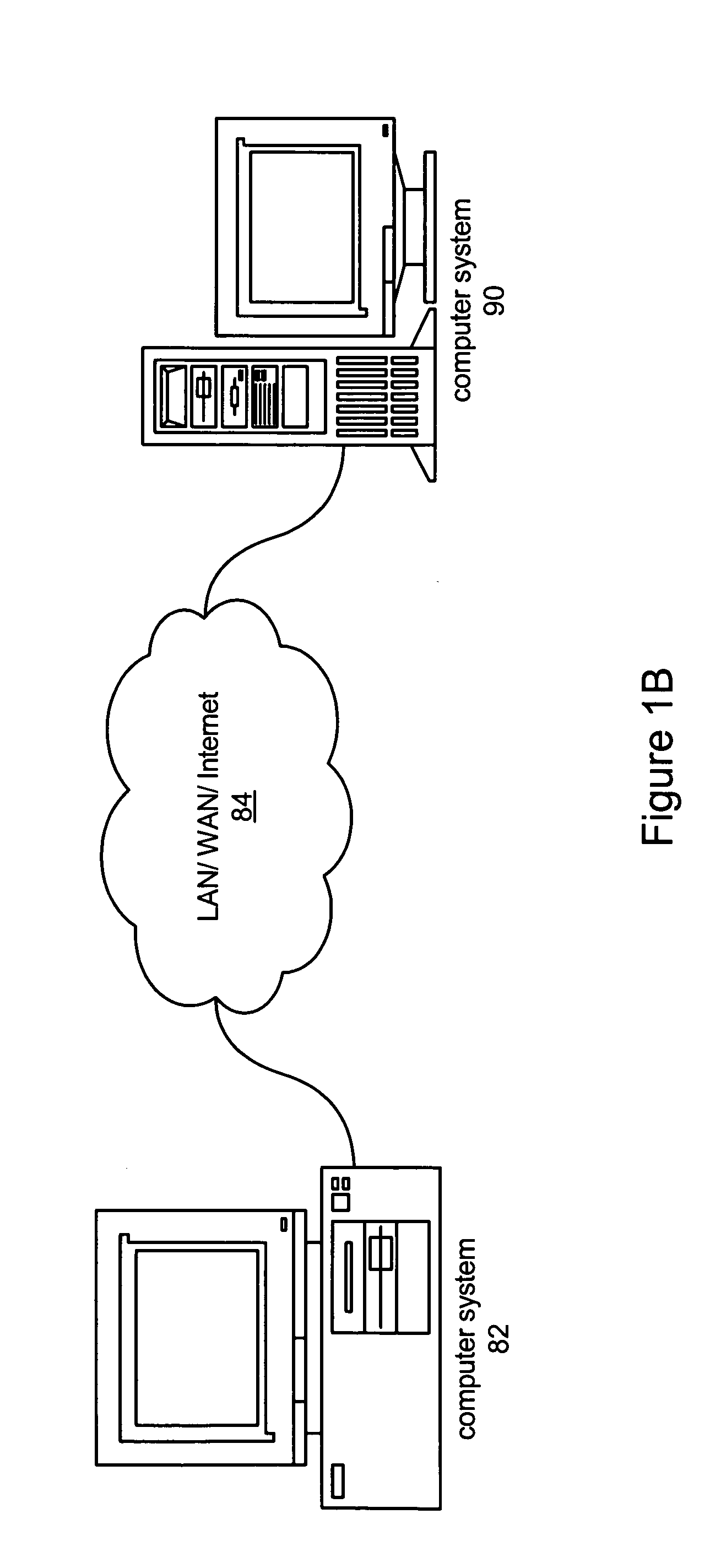Automatic versioning and data mutation of user-defined data types
a data type and data technology, applied in the field of programming, can solve the problems of difficult to recognize the version of a given piece of data and decide which mutation operation to perform, and the problem becomes substantially more complex
- Summary
- Abstract
- Description
- Claims
- Application Information
AI Technical Summary
Problems solved by technology
Method used
Image
Examples
example use case
[0186] Consider a developer of a user-defined class, i.e., a user. The user has stored data for the class, i.e., an instantiated object, in a database table, formatted in a column of string type. Upon execution, information is read from the database, unflattened, processed or executed, flattened, and stored back in the database. Now the vender / developer sends the user a new version of the user-defined class which has changed a numeric in the private data from an int32 to a double, but doesn't change the interface (the public member functions or functions). The user copies the new module over the old module and starts execution. No changes are needed to the user's program. The user-defined class can completely change the data type of the private cluster and because the user-defined class knows how to flatten and unflatten old versions of data into the new data format, the user doesn't ever have to know that a version increment occurred. Initially, all the strings in the database are ...
PUM
 Login to View More
Login to View More Abstract
Description
Claims
Application Information
 Login to View More
Login to View More - R&D
- Intellectual Property
- Life Sciences
- Materials
- Tech Scout
- Unparalleled Data Quality
- Higher Quality Content
- 60% Fewer Hallucinations
Browse by: Latest US Patents, China's latest patents, Technical Efficacy Thesaurus, Application Domain, Technology Topic, Popular Technical Reports.
© 2025 PatSnap. All rights reserved.Legal|Privacy policy|Modern Slavery Act Transparency Statement|Sitemap|About US| Contact US: help@patsnap.com



